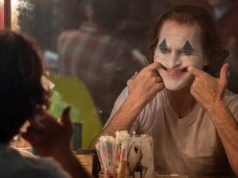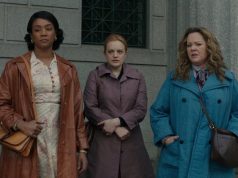“The Incredible Hulk” offers the quantity of action that many people felt was lacking in Ang Lee’s more contemplative 2003 treatment of the big green freak, and it does it without skimping on the other necessary elements. I thought “The Hulk” was an intelligent and captivating comic book adaptation — perhaps the most comic-booky so far, visually speaking — but I understand that those aren’t necessarily the most prized qualities in such a film. Fans want Hulk to smash things. That’s fair, and I respect that.
Hulk smashes a good number of things in Louis Leterrier’s spiffy new reboot, which basically discards the first film, summarizes its own origin story in the opening credits, then rejoins the action five years later. Everyone knew that Leterrier, who worked on adrenalin-happy jaunts like “The Transporter” and “Unleashed,” could bring the energy and mayhem the franchise needed. The nice surprise is that he can deal with Bruce Banner’s sadness, isolation, and pain, too.
When we find him, Bruce (Edward Norton) is hiding out in a Brazilian slum, working at a bottling factory for cash and spending his spare time trying to find a cure for the gamma radiation poisoning that makes him turn hulky when he gets angry. He also studies martial arts and Zen techniques, to help him master his emotions. Bruce is the quintessential candidate for an anger management course, and the screenplay (by “Elektra” and “X-Men: The Last Stand” writer Zak Penn) makes a few good jokes along those lines.
“Iron Man” (2008) B
“The Incredible Hulk” (2008) B
“Iron Man 2” (2010) B-
“Thor” (2011) B
“Captain America: The First Avenger” (2011) B
“The Avengers” (2012) B+
“Iron Man 3” (2013) B+
“Thor: The Dark World” (2013) C-
“Captain America: The Winter Soldier” (2014) B
“Guardians of the Galaxy” (2014) B
“Avengers: Age of Ultron” (2015) B-
“Ant-Man” (2015) B
“Captain America: Civil War” (2016) B
“Doctor Strange” (2016) B+
“Guardians of the Galaxy Vol. 2” (2017) B-
“Spider-Man: Homecoming” (2017) B+
“Thor: Ragnarok” (2017) B
“Black Panther” (2018) B
“Avengers: Infinity War” (2018) B-
“Ant-Man and the Wasp” (2018) B
“Captain Marvel” (2019) B-
Back in the States, Bruce’s beloved Betty Ross (Liv Tyler) is working at a university while her father, the steel-hearted warmonger Gen. Thaddeus Ross (William Hurt), actively searches for Bruce. The general doesn’t want to cure him, of course — he wants to harness whatever it is that makes him this way and use it as a weapon. If you could imbue a soldier with such strength and indestructibility, he’d be the greatest boon to the military since the invention of gunpowder. If you could control it, that is. Which you couldn’t. Which means Gen. Ross’ plan is a huge disaster waiting to happen. But hey, you try reasoning with a warmonger. It never works.
Bruce’s Brazilian hideout is eventually discovered, and he flees back to the U.S. to retrieve the scientific data regarding his situation that he needs to research a cure. Meanwhile, Ross and his imported protege Emil Blonsky (Tim Roth), eager to sample some of Bruce’s superpowers himself, follow a basic pattern of pursuing Bruce, turning him into the Hulk, destroying a lot of public property in the course of battling him, and then losing him again when the Hulk defeats them and lumbers off into the distance.
The fights are appropriately spectacular and furious; no one will complain that this Hulk film falls short in the respect. There is a certain sameness to it all, though, and a certain familiarity to the plot, too: Sooner or later, nearly every superhero franchise pits the hero against a villain who has the same powers he does; I guess it’s the only way to keep things interesting when the hero himself is virtually unkillable. On the other hand, these face-offs always result in some bone-crunchingly exciting fights, and the Hulk’s match with a creature fittingly called Abomination is no exception.
With crafty homages to the 1970s TV series, a delicious performance by Tim Blake Nelson as a loopy New York university professor, and the best Stan Lee cameo to date, “The Incredible Hulk” hits all the points on the checklist that moviegoers craved in the 2003 edition. My nerd friends assure me it’s pretty faithful to the mythology of the comic book, too, tying in with other Marvel heroes such as Iron Man and Captain America. And if you’ve satisfied the regular movie fans and the comic book devotees, you’ve pretty much nailed all the demographics for something like this.
B (1 hr., 54 min.; )





